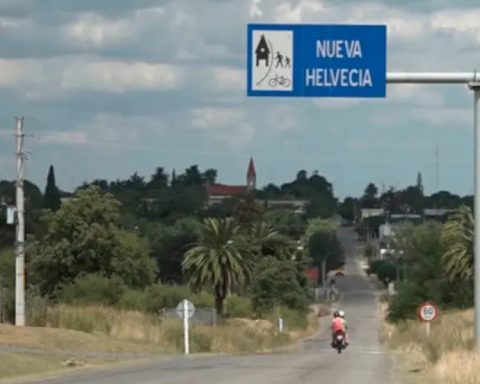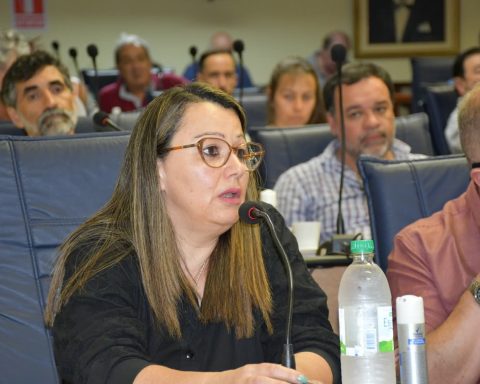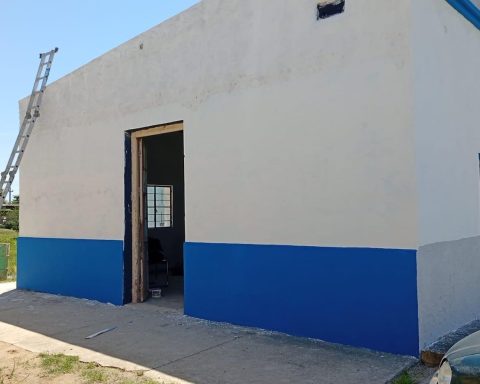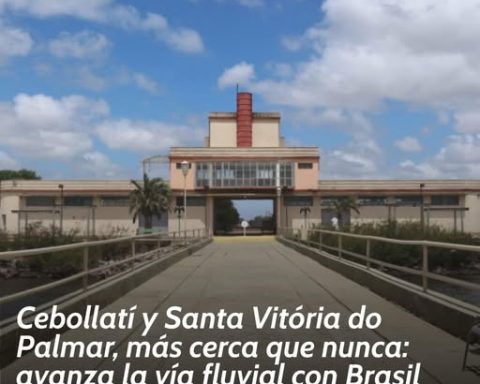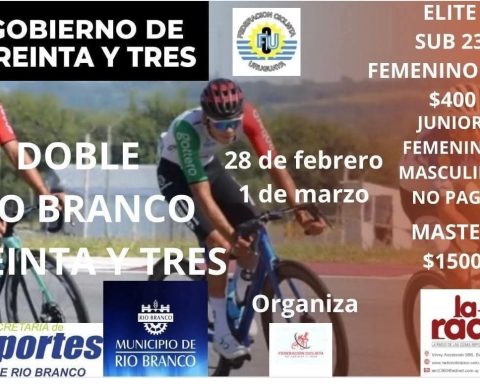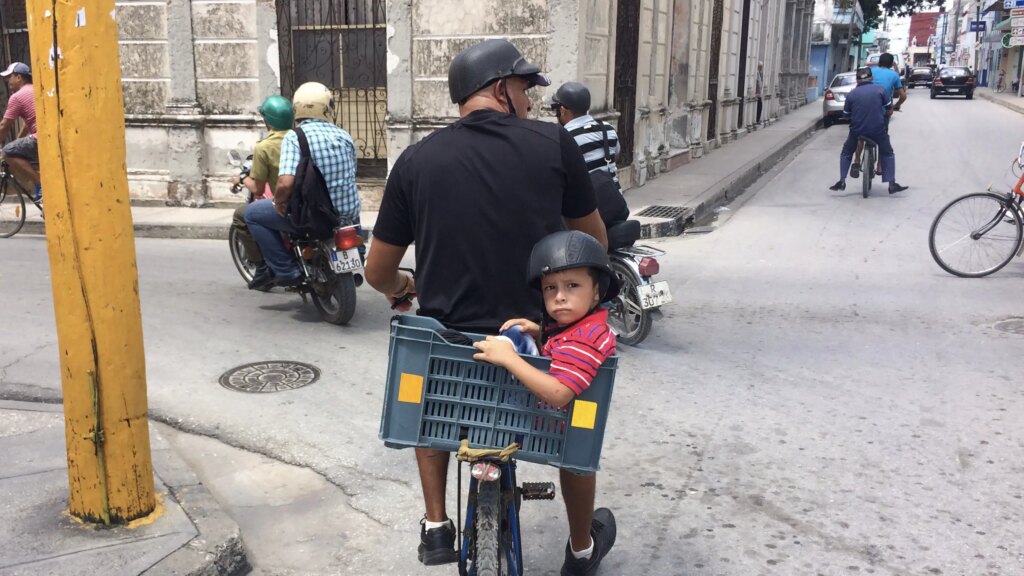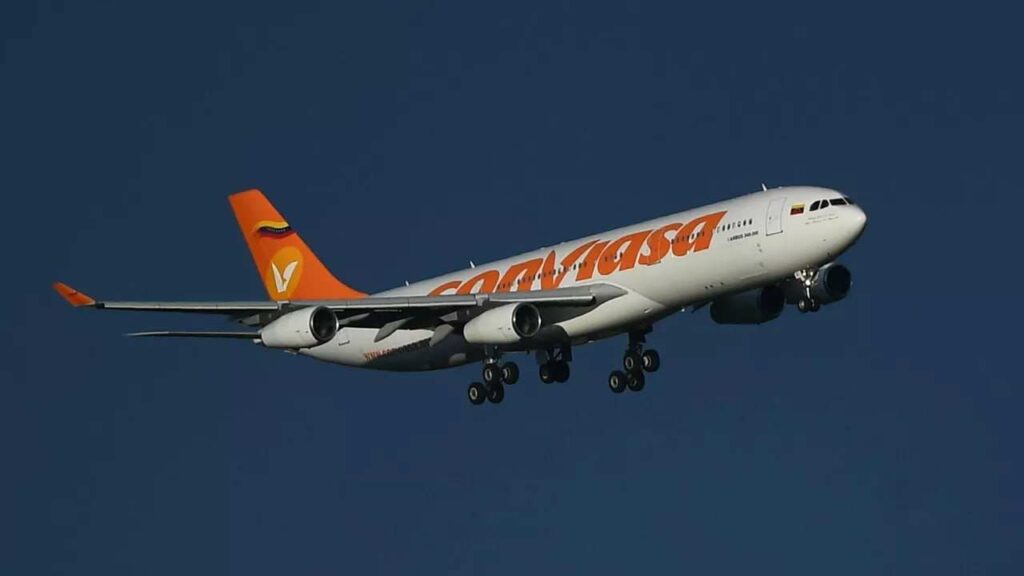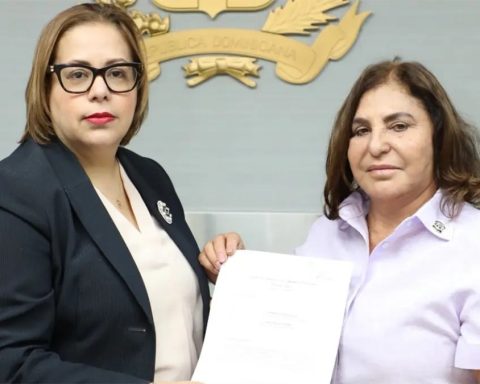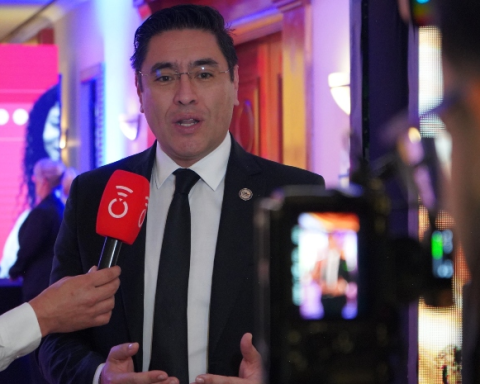the ambitious project to turn metropolitan area trash into fuel for ships is no longer on the agenda.
Because of the fact that nothing should be left for dead, the government has not made official the failure of the initiative that the president himself Luis Lacalle Pou announced before the General Assembly at the dawn of 2022, but all parties recognize that the negotiations have been truncated for at least six months.
In one of his last moves in the Ministry of Environment, and despite the interest of Torre Ejecutiva in sealing the private initiative on a metropolitan scale, Adrián Peña closed the agreement with Yamandú Orsi to activate a “plan B” that would put an end to the landfill in Cañada Grandewhose closing is in the speeches of the departmental hierarchs almost 20 years ago.
“The most interested in a quick solution were the ministry and the Municipality of Canelones, more than Montevideoand that urgency ended up bringing us together,” Peña told The Observer. “The proposal is being refined and there is a possibility of an alternative, but it is not closed,” added the current senator and leader of Ciudadanos.
The story goes back to the beginning of the current administration, it begins with a “mega-dump” resisted by neighbors and canceled by the government, it continues with intricate negotiations for a private consortium to manage more than half of the garbage in Montevideo and Canelones, and is all crossed by political difficulties of a million-dollar project that required aligning Lacalle Pou, Carolina Cosse and Yamandú Orsi, that little picked up the phone to communicate with each other.
Meanwhile, one of the novelties of the Accountability who will enter Parliament at the end of June will be a item to promote the recovery of offal and thus promote the closure of landfills committed by the National Waste Management Plan by 2024confirmed coalition sources to The Observer.

Diego Battiste
Final disposal site of Montevideo, Felipe Cardoso
The canary urgency and the negotiations
He “waste to fuel” came to Torre Ejecutiva in November 2020 as an idea to turn garbage into jet fuel, but for technical reasons it turned to a private initiative of the Uruguayan companies CSI Ingenieros, Ciemsa and Inglobal, associated with the North American Wastefuel, to produce the methanol that propel the eight new ships announced for next year by the Danish shipping company Maersk in its commitment to cut emissions by 2050.
Just a few months before, the new Ministry of the Environment canceled the tender for the final disposal site – labeled a “mega-dump” by the Soca producers – of the Municipality of Canelones for Cerro Mosquito, with a view to close the current property in Cañada Grande.
Although the management was already awarded US$ 8 million to the consortium of Aborgama, Favelan and Ebital, Peña argues that the project “had an impact on rural areas” and had “significant social resistance” beyond its environmental authorization, a decision that has motivated several crosses with Orsi himself.
And it is that, unlike Montevideo -which with Felipe Cardoso has a useful life of at least five years and the possibility of expand landfill to contiguous land in the northeast– Canelones has the noose around its neck with Cañada Grande. Hence Orsi’s anger with the cancellation of Cerro Mosquito as an alternative.
Until soon, with Lacalle’s announcement in March 2022, talks would begin so that close to half of the 500 daily tons of Canarian garbage would be transferred to Felipe Cardoso where, with the “waste to fuel”, some 700 tons of waste per day would decompose to obtain biogas and then transform it into the methanol that would power Maersk ships, in a process called “Fisher Tropsh”.

Santiago Mazzarovich/Intendancy of Montevideo
Archive. Cosse and Orsi met for the issue on June 3, 2021
The only joint appearance by Cosse and Orsi on the subject was a press conference in June in which they spoke in favor of the initiative. But one of the central conditions put forward by the two potential rivals of the Broad Front inmate was that the tipping fee – as the rate that their municipalities should pay to the private consortium to manage the waste is known – was the same for both.
At that time, a US$70 million IDB loan with various cleanup measures was being negotiated in the Departmental Board, which would later fail despite the explicit support of the Colorado sector led by the then Environment Minister Adrián Peña. Cosse maintained that day that the “waste to fuel“should” be accompanied by adequate investments for the environmental, social and logistic improvement of the area”.
That was on June 3, 2022: one of the last times that the private initiative that excited the government was publicly discussed.
In parallel to the Sustainable Expo the following week, the Municipality of Montevideo (IM) began to negotiate with the consortium. In this hand-in-hand interaction, one of the first proposals of the Cosse administration was that the private sector also assume other urban interventions in parallel, as part of the “same package” in terms of creating an “environmental park.”
The list, which you accessed The Observerranged from the paving of the streets around Felipe Cardoso –Cochabamba, Camino Cepeda and a perimeter towards Camino Maldonado– to the relocation of the Felipe Cardoso settlement, the subsequent landscaping of that space, improvements in the informal classification 5 BISthe diversion of OSE’s fifth pumping line, the construction of a new machine shop and offices for the Water Bodies Unit, among other orders.
Another of the initial proposals of the commune, and the one that would be the biggest knot of the question, was that I only gave them an equation in which the tipping fee out from US$ 9 per ton of waste. The delegation headed by the director of Environmental Development, Guillermo Moncecchi and the head of Cleaning, Ignacio Lorenzo, argued that today the final disposal costs the IM between US$10 and US$15 per ton managed.

Diego Battiste
Entrance to Usina 5 Bis
The initial scheme of the consortium – in the conversations led by the new business manager of CSI Ingenieros, Javier Durán – implied the IM almost double what it was asking for so that it would not be more expensive: about US$20 per ton. The reference taken was that the figure was below the US$ 25 per ton that the Municipality of Canelones had authorized for the unsuccessful bidding for Cerro Mosquito.
That was in the middle of June 2022.
The comings and goings led to the fact that some five months later the cost scheme proposed by the private consortium proposed to be distinctive. Montevideo would get US$16 per ton, but as a counterpart, Canelones would have to pay about US$24 for each ton of waste (always below the tender threshold). The capital was the one that housed the operation, and one of the issues on the table was that a percentage of the Canarian garbage, which was not usable in the “waste to fuel” process, would go to Felipe Cardoso, of Montevidean jurisdiction. .
The Cosse administration understands that “the numbers are still not closed” to make it “competitive” with its current management. One of the reproaches from those ranks is that the municipalities end up being the ones that “bank” the private initiative promoted by the national government.
In Canelones, meanwhile, it did not go down well that the increase in the cost of tipping fee fall on them, when in fact one of the conditions imposed by Cosse and Orsi months before was that both bear the same costs. Technical doubts also persisted about a management model that has not been proven in the world, which the national government put on the agenda at the initiative of a private company.
“We have not had more meetings and the deadlines that were handled have been exceeded”said to The Observer the director of Environmental Management, Leonardo Herou, who was in the negotiations along with Alejandro Tarigo, a technician from the Waste Management Area.
The informal comment on Government ranks to this day hold Cosse’s management responsible for making demands that ended up truncating the negotiations, in the understanding that with a different urgency than that of Canelones, he set his own times and there was no desire for coordination between the Frente Amplio mayors. That is why now a Plan B is activated that only includes Canelones.
new negotiations
The government and the Canarian commune are finishing buttoning up a private project that would install an industrial treatment of waste -and its recovery- in the surroundings of the former company Metzen y Sena (in Empalme Olmos), which has dozens of hectares and in 2018 it was acquired by businessman Andrés Guichón. Government sources confided to The Observer who work in a relationship with Aborgama, which had won the tender for Cerro Mosquito.
The Ministry of the Environment has not yet closed the door to “waste to fuel“, while there are still contacts between the parties with the consortium. Adrián Peña, on the other hand, considered that “they are live initiatives, because if Canelones fails, we know that we can go that way.” “At some point, given the political situation, it became more take another path”, he summarized.
The former minister announced that at the request of the Ministry of Economy, the accountability will include “tax benefits for those who value waste”, with the objective of “burying as little as possible”.
Meanwhile, the government argues that waste-to-fuel technology is already on the agenda, and that even Today there are “other initiatives under study”.
